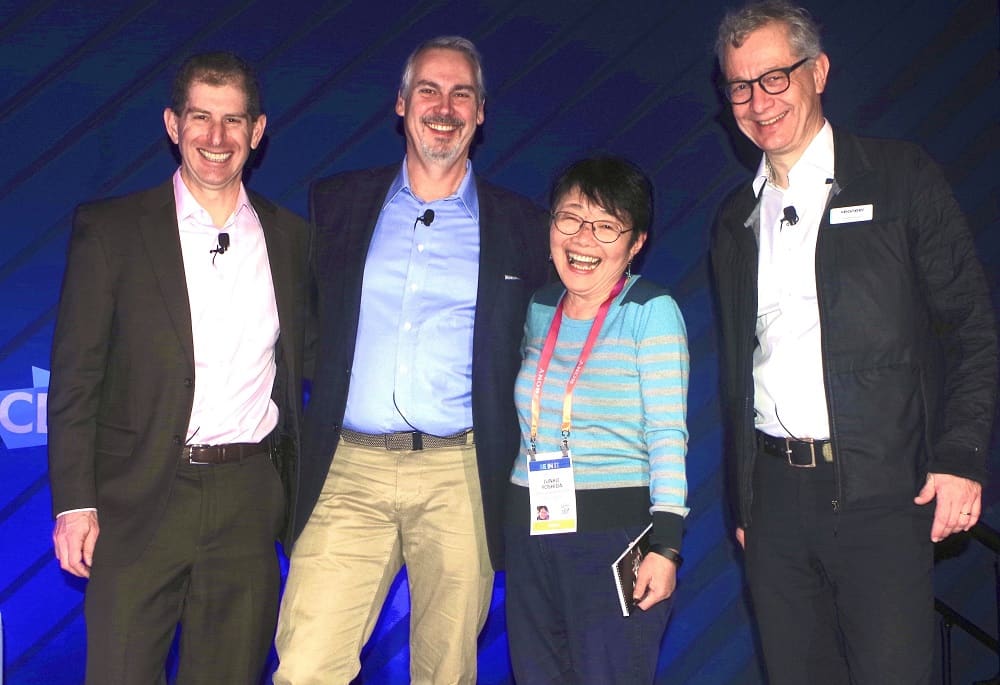CES Panel with Bryan Reimer Discusses the Long Road to Safer Automated Vehicles
by Adam Felts
Predictions of fully autonomous cars on American roads have proven to be hasty - but plenty of discussion remains for how automation in vehicles can serve us and make us safer.
A panel at the Consumer Electronics Show titled "The Spinning Wheel of Technology – On the Road to Trusted Mobility," sponsored by Veoneer, featured experts across the spectrum of discourse on robotic vehicles, including David Harkey, President of the Insurance Institute for Highway Safety; Junko Yoshida, Co-Founder & Editor-in-Chief of The Ojo-Yoshida Report; Ola Boström, VP of Government and Regulatory Affairs at Veoneer, and AgeLab Research Scientist Bryan Reimer. The AgeLab's AVT consortium, which Dr. Reimer leads, investigates human interactions with increasingly computerized and semi-automated vehicles, with the aim to better understand how vehicle technologies can make us safer on the road.
Rather than discussing a future in which our cars seamlessly drive themselves, the panel instead delved into messier conversations about about how to engineer "semi-autonomous" vehicles to work better with the still-indispensible human operator. One challenge, as the panelists discussed, is the conceptual murkiness of the "level" of autonomy that today's vehicles possess. A longstanding effort to categorize levels of vehicle automation on a scale of 1 to 5 appears so far to have been unsuccessful in educating consumers on what they can expect from their cars.
A primary challenge, Dr. Reimer said, is making sure that drivers do not lapse into the belief that they are passive "riders" rather than active operators of today's set of advanced semi-autonomous cars, outfitted with technologies like Tesla's AutoPilot and adaptive cruise control. Setting proper expectations for users of these technologies happens at multiple levels: in how cars are marketed and advertised, how they are sold from dealerships, and how they interface with the user during the act of driving.
An article in the Ojo-Yoshida Report discusses the panel's conversation in greater detail.

